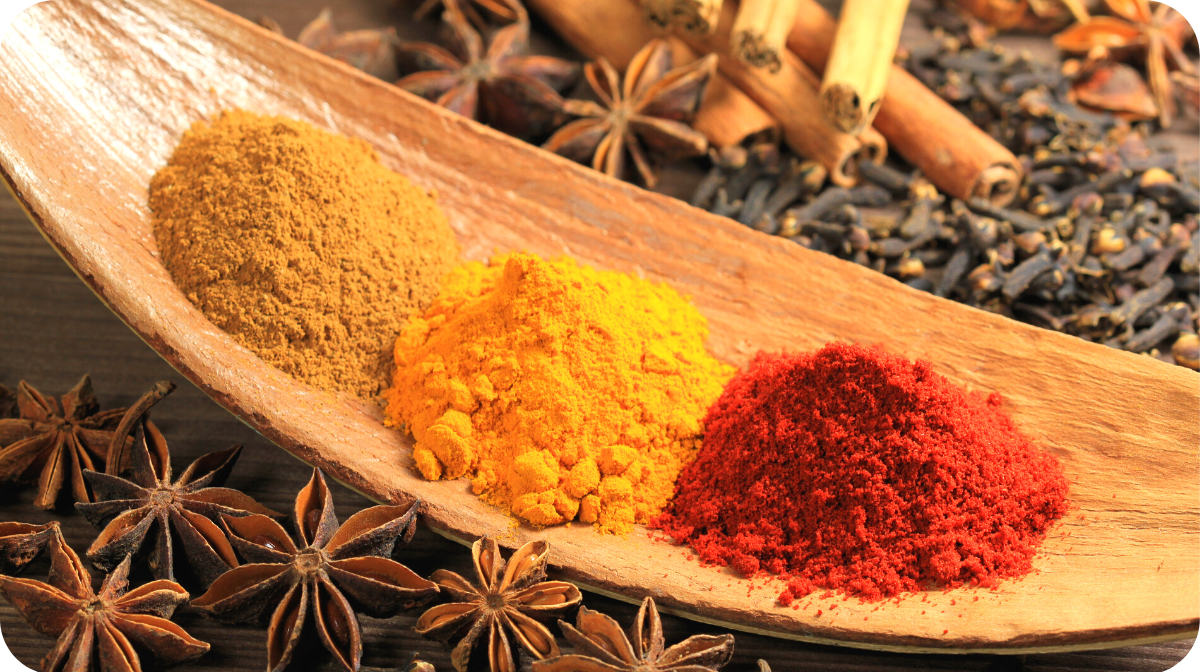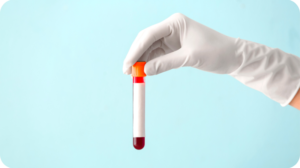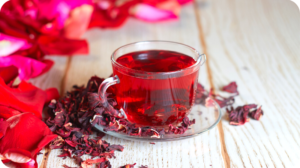It’s easy to overlook the health benefits of spices. After all, as a culture, the American palette tends toward blandness. We usually focus more on mouth feel and texture than we do on the subtleties of spices. We also lean too heavily on processed foods, which are naturally under-spiced to appeal to the broadest possible range of tastes.

That’s a shame, because these modest recipe additions can offer big potential rewards when regularly included in a diet. The benefits range from the general, such as boosting mental clarity and focus, to the more specific, like the anti-carcinogenic and anti-inflammatory properties of the healthiest options.
These three spices are spotlighted both for their potential health impacts and for their adaptability to a range of dishes, from sweet to savory.
The Super 3
The wonderful thing about these superstar spices is that they can easily be integrated into a daily diet if you make your food from scratch—the healthiest way to eat in any case.
- Turmeric. This is the king of superfood spices. The main active ingredient in turmeric is actually another spice: curcumin. It is a powerful antioxidant and, along with other compounds in turmeric, makes this golden spice a significant anti-inflammatory agent. Research suggests that turmeric may even play a role in fighting cancer and heart disease. Try to incorporate at least ½ teaspoon into your daily diet. It is wonderful in scrambled eggs, added to robustly flavored smoothies, and used in “Golden Milk” right before bed.
- Cinnamon. Well-known and researched as a blood sugar modifier, this spice also has antioxidant properties and a positive impact on cholesterol levels. Aim to consume a teaspoon per day. Cinnamon adds a wonderful warmth to coffee and is often used as a sugar substitute among java lovers. Add it to oatmeal or morning cereal, black tea, or liberally sprinkle it on apple slices for a healthy, sweet tooth-satisfying snack or dessert.
- Cayenne pepper. You might be surprised to learn that this fiery addition to the list contains abundant vitamins A, C and K. It also offers a significant amount of antioxidants, and the key ingredient capsaicin is a potent anti-inflammatory that studies suggest can play a role in preventing heart disease. It can also aid digestion. Many people shy from using this spice because of the heat, but the secret is to only use a small amount in any recipe. A dash added to an omelet brings just enough fire, and ¼ teaspoon in a ganache or chocolate frosting recipe will boost the flavor of the chocolate. Add that same amount to large-batch stews and soups, for an extra bit of zing.
As with any edible, you can go too far with spices. For instance, a social media trend called the Cinnamon Challenge dared viewers to swallow a spoonful of ground cinnamon, which could cause irritation to the throat and lungs, cause breathing difficulties and result in other serious health conditions. Ingesting large amounts of cayenne pepper has similar effects, spiking blood pressure and causing uncomfortable bodily responses. The best way to leverage spice health benefits is to introduce them slowly into your diet, increasing the use over time as you become used to the flavors and discover which spices work best with which recipes.
Share some love if you like this post!





